Israel’s border with Syria turned to chaos on Wednesday, with around 1,000 Druze residents of Israel breaching the frontier and dozens of Syrian Druze trying to cross in the other direction, as the toll from the deadly violence in the southern Syrian Druze region of Sweida continued to rise steadily after four days of clashes.
The havoc on the border was mirrored in Damascus, as Israel punctuated its demand that the Syrian regime leave the Druze community of Sweida alone with a series of airstrikes targeting the country’s military infrastructure.
Syrian government forces entered the majority-Druze city of Sweida on Tuesday with the stated aim of overseeing a ceasefire agreed on with Druze community leaders after clashes with local Bedouin tribes left more than 100 people dead.
However, witnesses reported that the government forces joined with the Bedouin in attacking Druze fighters and civilians in a bloody rampage through the city.
In total, the number of dead was said on Wednesday afternoon to be approaching 250.
Images from the border region on Wednesday showed Israeli troops firing tear gas at several dozen Syrians who attempted to cross into Israel from a point near the Syrian Druze town of Hader.
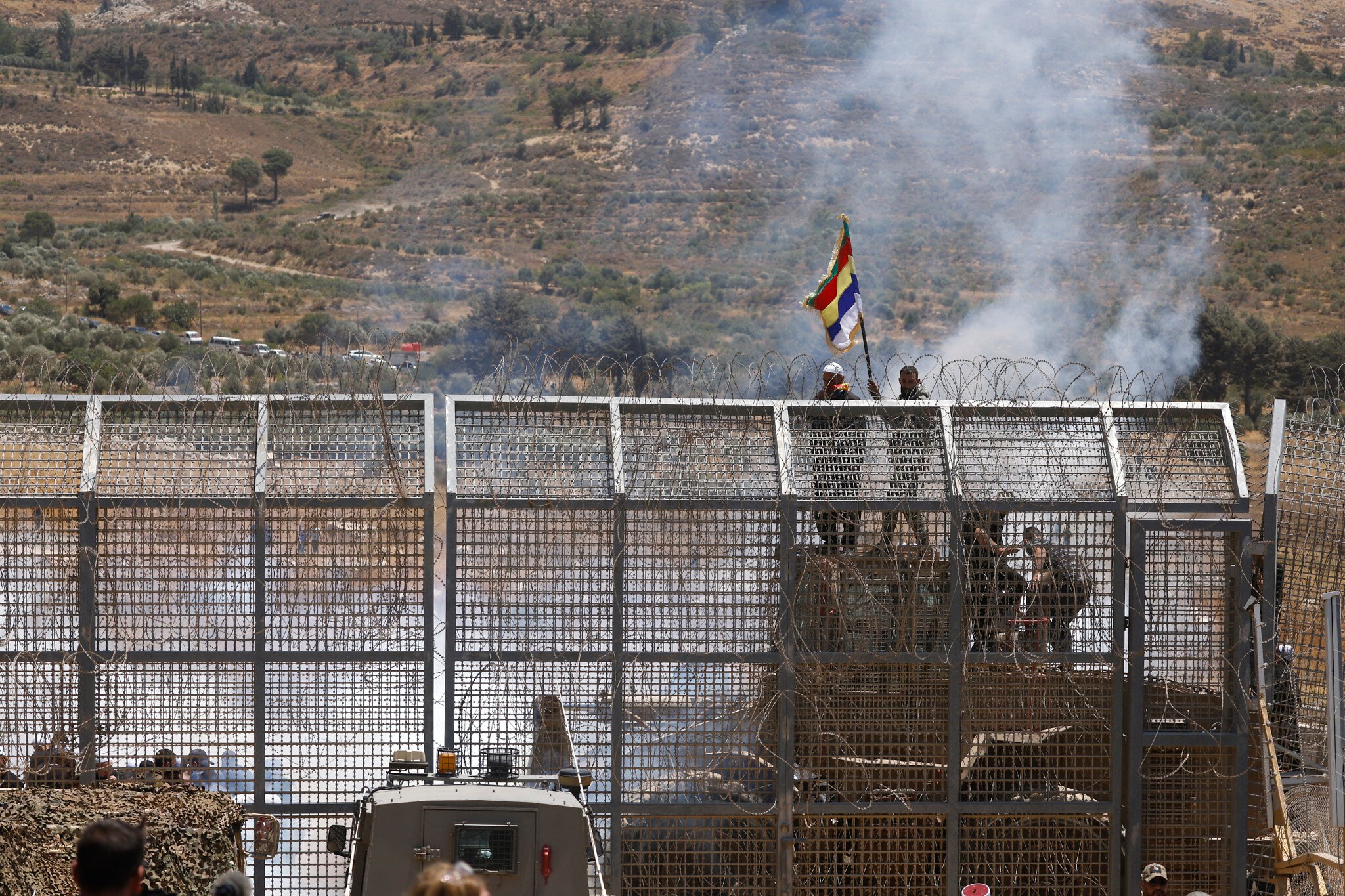
The military said that troops were working to prevent the infiltration. It was unclear how many Syrian Druze had entered Israel. The Kan public broadcaster interviewed a man who claimed to have arrived from Hader.
Simultaneously, around 1,000 civilians from the Israeli side of the border breached the barrier near the Druze city of Majdal Shams and entered Syria, the IDF said, adding that troops were working to return the civilians — Druze residents of Israel — back to the country.
Some Israeli Druze who crossed the border were seen getting into vehicles and driving away, possibly to Sweida to help protect the Druze there, a military official said.
It was the second day in a row that Israeli Druze had managed to breach the border with Syria, although this time in much larger numbers, after dozens crossed the frontier on Tuesday.
The IDF called the border crossings a “grave incident that constitutes a criminal offense and endangers the public and IDF forces.”
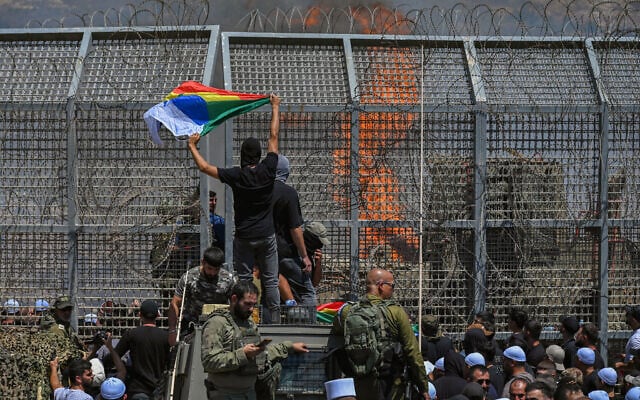
This was echoed by Prime Minister Benjamin Netanyahu, who issued a video statement imploring members of the Druze community not to cross the fence.
“My fellow Druze citizens of Israel, the situation in Sweida, the situation in southwestern Syria, is very serious,” Netanyahu said. “The IDF is working, the Air Force is working, other forces are working. We are working to save our Druze brothers and to eliminate the regime’s gangs.”
“And now I have one request from you: You are citizens of Israel. Do not cross the border,” Netanyahu said. “You are risking your lives; you can be murdered, you can be kidnapped and you are harming the efforts of the IDF. Therefore, I ask you – return to your homes, let the IDF operate.”
Following a fresh assessment on Wednesday morning, the IDF had said it was bolstering forces in the Syrian border fence area, including four companies from the Border Police, Military Police, and Golani Brigade troops in training.
Amid the chaos on the border, IDF Chief of Staff Lt. Gen. Eyal Zamir ordered the military to further enhance its surveillance and offensive capabilities in the area.
Zamir instructed the Northern Command to divert forces to the Syrian frontier to “increase the rate of strikes and stop attacks against the Druze in Syria,” the military said.
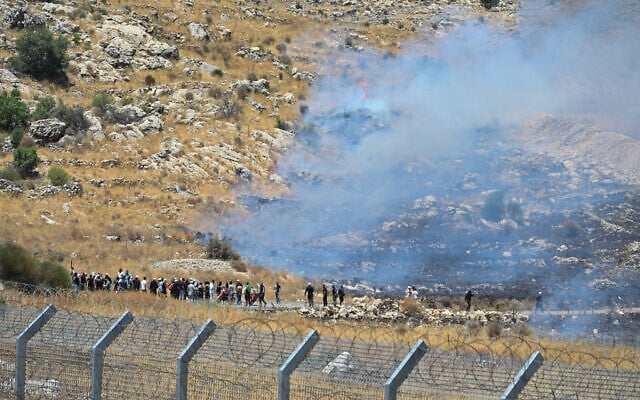
The IDF said it was ready to deploy two divisions to the Golan Heights and divert aerial forces, including drones and fighter jets, to the area. The additional forces would bolster the 210th “Bashan” Division along the border and in the Israeli-controlled Syrian buffer zone.
“The IDF is committed to the deep alliance with our Druze brothers and is therefore striking targets across Syria in order to protect them in the Sweida region, Jabal al-Druze, and wherever necessary,” the military’s statement said.
The IDF also added that “crossing the fence into Syria without control endangers the Druze and our forces and must be stopped immediately.”
Strikes slam into Damascus; Katz warns of ‘painful blows’
A military official said the IDF was preparing for several days of fighting, while at the same time, there were ongoing indirect talks between Israel and Syria. Israel was also in contact with the US regarding the incidents, according to the official.
Amid the chaos in the border region, Israel carried out several strikes on Wednesday in Damascus and on Syrian regime forces who deployed to the areas of southern Syria where the deadly clashes have erupted.
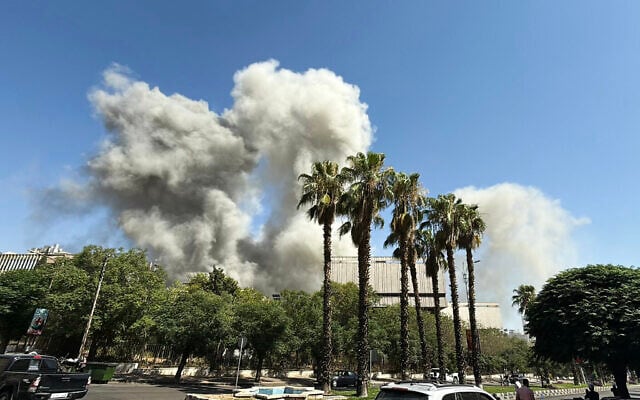
According to the IDF, the fresh strikes hit Syrian tanks, rocket launchers, and pickup trucks with mounted machine guns that were heading to the Druze-majority city of Sweida in southern Syria, as well as access routes.
Local media reported that Syrian government forces were injured and their vehicles were damaged in the Israeli strikes on Sweida. Syria has said its forces were deployed to Sweida to break up the clashes.
Over 160 targets were hit in Syria, mostly in the Sweida area, since Monday, the IDF said.
“The IDF continues to monitor developments and activity against Druze civilians in southern Syria and, in accordance with the directives of the political echelon, is attacking the area and is prepared for various scenarios,” the military said.
צה"ל ממשיך בתקיפות נגד מטרות צבאיות של המשטר הסורי בדרום סוריה
כלי טיס של חיל האוויר תקפו ביממה האחרונה וממשיכים לתקוף טנקים, מטולי רקטות, אמצעי לחימה וטנדרים חמושים במקלעים כבדים, שעושים את דרכם למרחב א-סווידא שבדרום סוריה.
כמו כן, הותקפו צירי הגעה לביצוע חסימות במרחב.
צה״ל…
— צבא ההגנה לישראל (@idfonline) July 16, 2025
Heavy strikes later Wednesday hit Syria’s general staff command building in Damascus and another “military target” near the Syrian Presidential Palace, the IDF said.
The IDF said the military and defense ministry headquarters in the capital were used by Syrian government forces to send troops to Sweida.
צה"ל ממשיך לתקוף מטרות צבאיות של המשטר הסורי בדמשק
צה״ל תקף לפני זמן קצר את קריית המטה הכללי של המשטר הסורי במרחב דמשק שבסוריה.
מקריית המטה הכללי בדמשק מפקדי המשטר הסורי מנהלים את הלחימה ושולחים את כוחות המשטר למרחב א-סווידא׳.
בנוסף, הותקפה מטרה צבאית במרחב ארמון הנשיאות של…
— צבא ההגנה לישראל (@idfonline) July 16, 2025
A warning strike was also carried out at the entrance to the general staff command building earlier, after which Defense Minister Israel Katz said, “The signaling in Damascus is over, now come the painful blows.”
“The IDF will continue to operate forcefully in Sweida to destroy the forces that attacked the Druze until their full withdrawal,” he added.
Minutes later, a large explosion was reported at Syrian military headquarters in Damascus, with Katz sharing a video on X of a live Syrian news report showing the strike in the background, with the caption: “The painful blows have begun.”
החלו המכות הכואבות
— ישראל כ”ץ Israel Katz (@Israel_katz) July 16, 2025
A short while after that, heavy strikes hit the general staff command building, which appeared to be heavily damaged.
“The Syrian regime must leave the Druze in Sweida alone and withdraw its forces. As we have made clear and warned, Israel will not abandon the Druze in Syria and will enforce the demilitarization policy we have decided on,” Katz said in a second statement.
Strikes by the Israeli Air Force have now totally destroyed the Ministry of Defense and General Staff Headquarters in the Syrian capital of Damascus.
— OSINTdefender (@sentdefender) July 16, 2025
“The IDF will continue to strike regime forces until they withdraw from the area, and will soon escalate its response against the regime if the message is not understood,” he added.
Druze in Israel call labor strike, day of protest
The strikes and border breaches came as the Druze community in Israel called a one-day labor strike in support of their embattled brethren across the border and demanded the Israeli government launch a military campaign to save them, claiming the Syrian regime was siding with Islamic State groups in a massacre of the local Druze.
The missive, released before the drone strikes, was signed by Sheikh Muafak Tarif, the spiritual leader of Israel’s Druze community. Speaking to the Kan public broadcaster, Tarif said he was on his way to the Golan, and that demonstrations would also be held in the capital Jerusalem. He urged other Israelis to join the Druze campaign.
“Silence and standing by are not possible,” the Druze leaders said in the statement. “This is an existential war of the Druze community.”
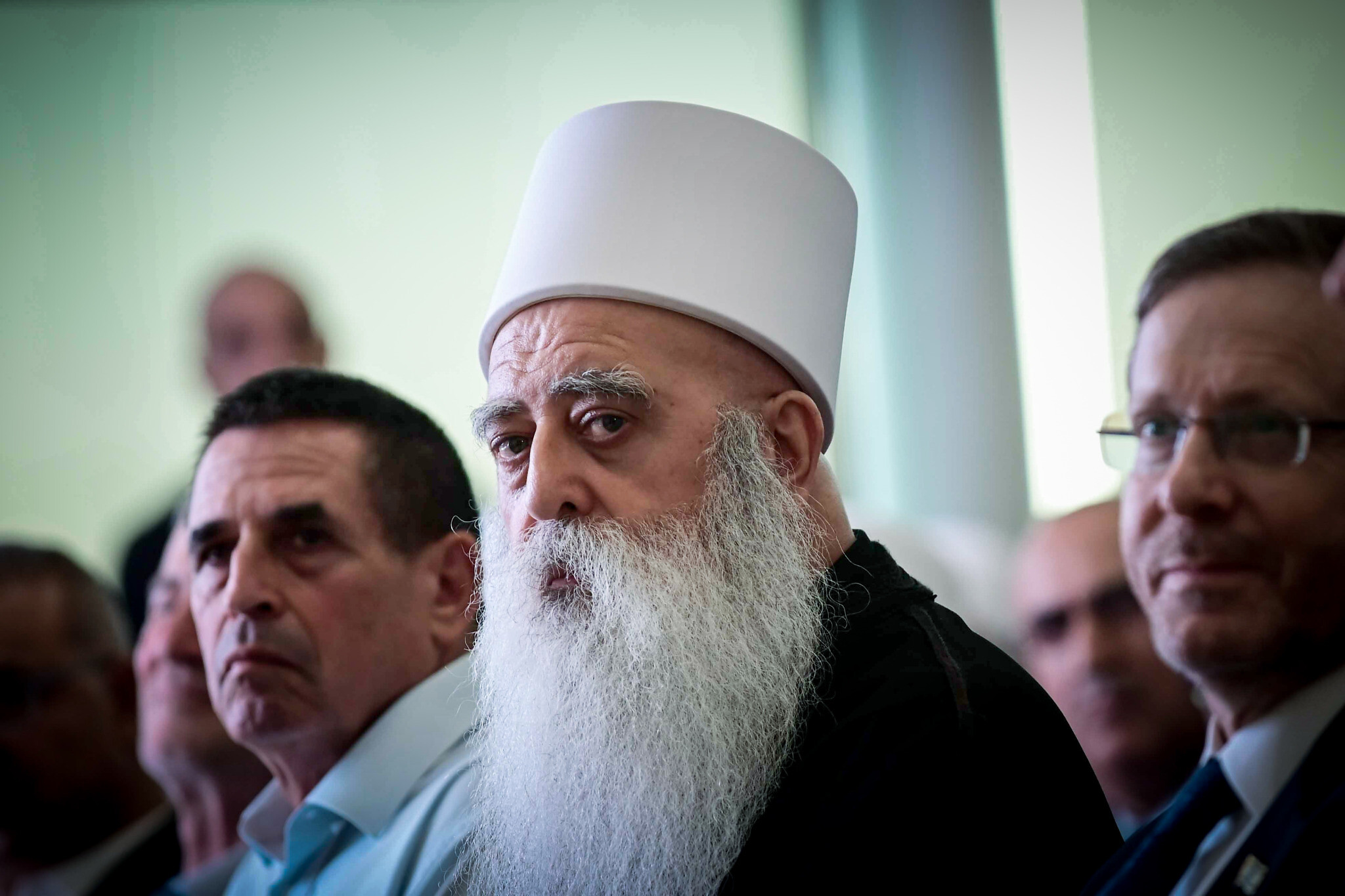
It said that a “shocking and cruel massacre is happening now in the Druze mountains of south Syria. Innocent civilians, women, children, and the elderly, are being murdered in cold blood.”
“Regrettably, the IDF and the Israeli government, despite their clear commitment, are not taking any real action to stop the killing,” the statement read. “This is a deep and unfortunate breaking point in the historical and valued alliance between Israel and the Druze community.”
The Druze leaders called on Israel to engage in an “unequivocal campaign” on behalf of the community in Syria, and referred to the IDF service of Druze community members, who have participated in the wars against Hamas in the Gaza Strip and Hezbollah in Lebanon.
Netanyahu and Katz, they said, must “choose between partnership with the Druze community or with Islamic State.”
According to Army Radio, the situation had escalated to the point that there were concerns among the Israeli political and defense leadership that Druze living in Israel could start deserting the IDF to help their brethren.
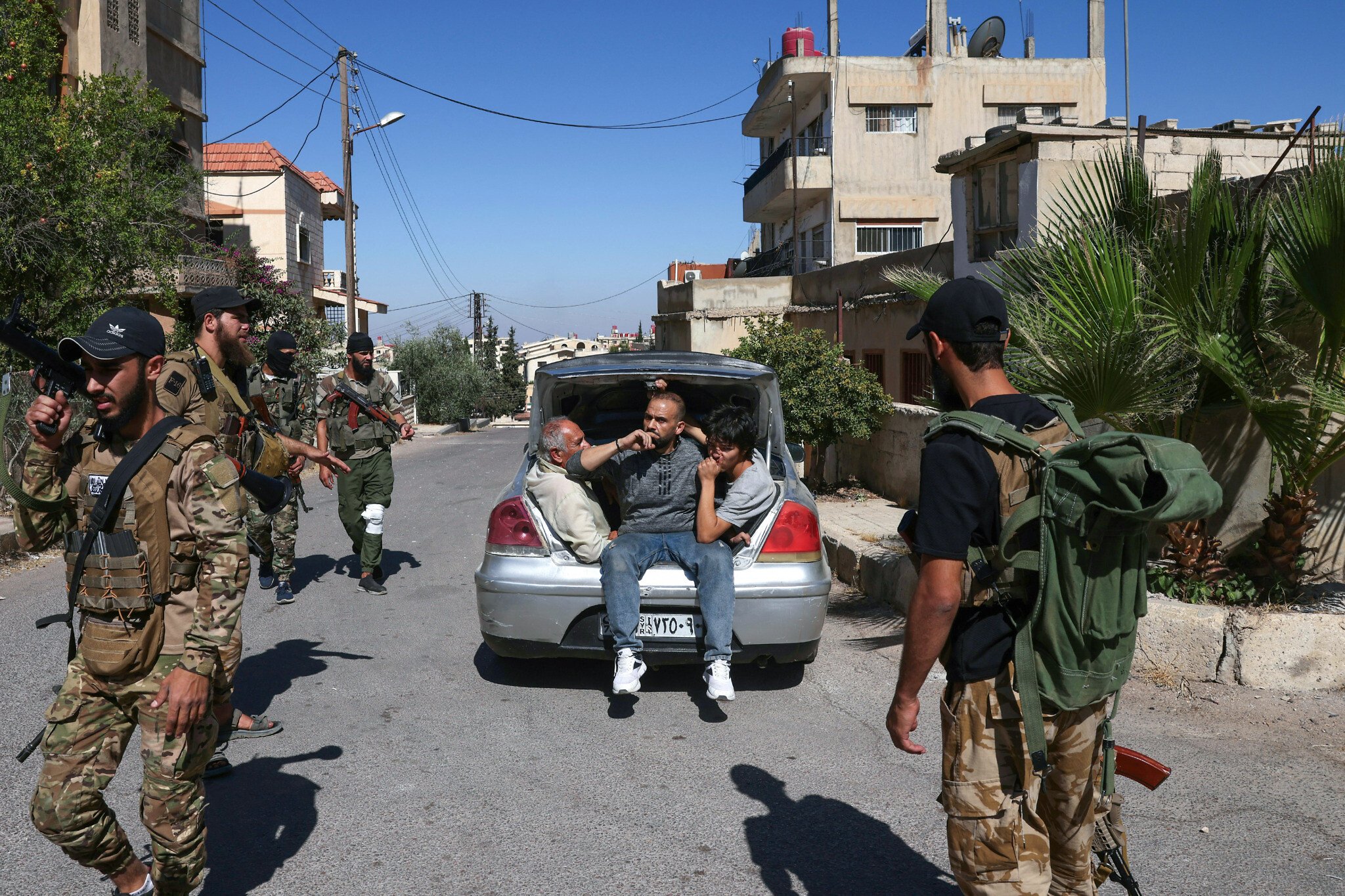
At least 248 people have been killed in southern Syria’s Sweida province following several days of clashes that triggered the deployment of government forces, according to the Syrian Observatory for Human Rights
The toll included 92 members of the Druze minority, 28 of them civilians, with 21 “killed in summary executions by government forces,” according to the war monitor.
At least 138 Syrian security personnel were killed, along with 18 allied Bedouin fighters, the monitor said.
Syrian government forces were believed by the IDF on Wednesday to be in control of 70% or more of Sweida, with around 200 forces in the city and 1,000 in the outskirts.
Clashes between Syrian government troops and local Druze fighters had resumed earlier Wednesday, just hours after a ceasefire had been announced.
Local news outlet Sweida24 said the city and nearby villages were coming under heavy artillery and mortar fire early, while Syria’s defense ministry, in a statement carried by state news agency SANA, blamed “outlaw groups” in Sweida for breaching the truce.
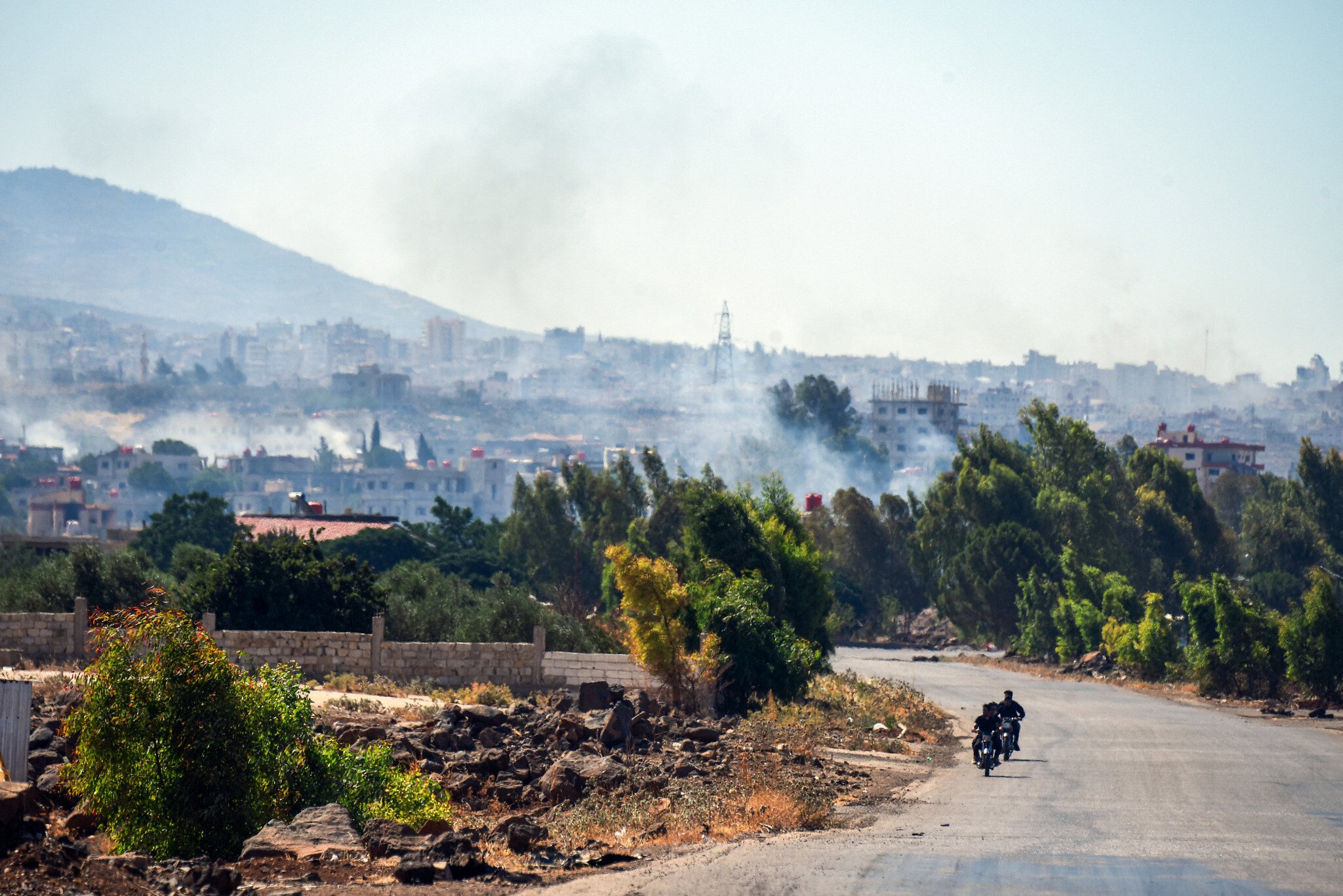
According to witnesses, Druze armed groups, and the UK-based Syrian Observatory for Human Rights monitor, government forces took part in fighting alongside the Bedouin against the Druze.
Syrian troops were dispatched to the province on Monday to quell fighting between Druze fighters and Bedouin armed men, but ended up clashing with the Druze militias.
Civilians and reporters in the city said that government forces had looted and burned homes, stealing cars and furniture on Tuesday. One man showed a Reuters reporter the body of his brother, who had been shot in the head inside their home.

